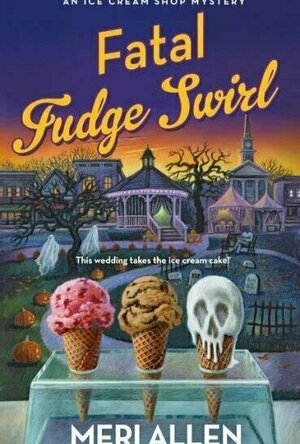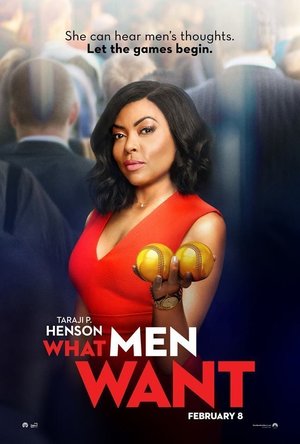Search
Search results
James Koppert (2698 KP) rated When I Hit You: Or, a Portrait of the Writer as a Young Wife in Books
Nov 13, 2019
This book hit me
The writer searched for a tender embrace and found rape and punches. Kandasamy is a poet and beautifully she uses words to punch back or to make sense of a horrific and unimaginable monstrosity of a situation. However, when I say poetic please don't assume this is pretentious for it is not. you sometimes feel terrible for enjoying the words as a thing of beauty,and it is a beautiful piece of writing, but it is there to mind meaning in the inexcusable. It is a wonderful cathartic explosion of finding sense where there is none. of finding hope where there was only hatred in the name of love. My hope is it may give another legs to run or an abuser a reflection into their monstrosity. This may be listed as a feminist book but is fighting against evil cruelty, bullying and rape feminist or is it a struggle to be more human?
Awix (3310 KP) rated Blade Runner (1982) in Movies
Nov 25, 2019 (Updated Nov 26, 2019)
Cult thriller from Ridley Scott. In present-day Los Angeles, investigator Harrison Ford finds himself obliged to hunt down and destroy four androids who have illegally returned to Earth from colonies in outer space. Yes, yes: I know it's a timeless classic and a visionary piece of science fiction (if not a particularly accurate piece of prognostication), but it's not a film I've ever found myself able to particularly warm to.
One of the prettiest and most visually dense films you will ever see, of course, but Ridley Scott seems much more interested in the film's visual impact than the actual story (even so, much of the imagery is rather clunky). Harrison Ford doesn't get much to do in his drab and perfunctory section of the plot - the film only really comes to life when it concerns Rutger Hauer's oddly sympathetic homicidal android, who ends up dominating the movie. Most of the book's quirky sense of melancholy disappears, though. For all its strengths it just feels rather superficial and hollow to me.
One of the prettiest and most visually dense films you will ever see, of course, but Ridley Scott seems much more interested in the film's visual impact than the actual story (even so, much of the imagery is rather clunky). Harrison Ford doesn't get much to do in his drab and perfunctory section of the plot - the film only really comes to life when it concerns Rutger Hauer's oddly sympathetic homicidal android, who ends up dominating the movie. Most of the book's quirky sense of melancholy disappears, though. For all its strengths it just feels rather superficial and hollow to me.
BI
Balls in a Sandwich
Book
Over 850,000 people suffer from dementia in the UK today. A brutally honest story of love, pain and...
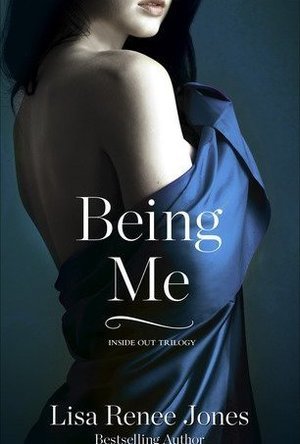
Being Me (Inside Out #2)
Book
The sexy second installment in the Inside Out erotic romance trilogy, following If I Were You—in...
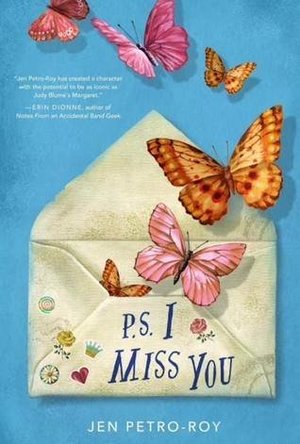
P.S. I Miss You
Book
In this epistolary middle-grade debut novel, a girl who's questioning her sexual orientation writes...
Sarah (7800 KP) rated Star Wars: Episode VIII - The Last Jedi (2017) in Movies
Dec 15, 2017
A disappointment
After such a good comeback with The Force Awakens and a fantastic prequel in Rogue One, my expectations for The Last Jedi were high and sadly it comes as a bit of a disappointment.
To me this just seems like a filler film. There isn't a massive amount achieved in the nearly 3 hour run time, to the point where I found most of it to be verging on boring. Until the final part, there was no excitement or tension or intrigue. The comedy too was surprisingly illfitted - where's K-2S0 when you need him? Even Luke coming back didn't feel quite right and some of the other characters too were severely underused.
Maybe The Force Awakens felt better because it was the first (good) Star Wars film in a long time, whereas this is the third in as many years with yet more to come. Don't get me wrong, this isn't a bad film and it was enjoyable to a point. It just wasnt as good as it could've been and it just came across as sadly lacking.
To me this just seems like a filler film. There isn't a massive amount achieved in the nearly 3 hour run time, to the point where I found most of it to be verging on boring. Until the final part, there was no excitement or tension or intrigue. The comedy too was surprisingly illfitted - where's K-2S0 when you need him? Even Luke coming back didn't feel quite right and some of the other characters too were severely underused.
Maybe The Force Awakens felt better because it was the first (good) Star Wars film in a long time, whereas this is the third in as many years with yet more to come. Don't get me wrong, this isn't a bad film and it was enjoyable to a point. It just wasnt as good as it could've been and it just came across as sadly lacking.
Hazel (2934 KP) rated The Fall [Audiobook] in Books
Apr 30, 2023
This was an enjoyable book to listen to partly because of the mystery surrounding who pushed Caily off the bridge but also because of the excellent narration.
There are lots of elements and sub-stories to this book which created additional mystery to an already intriguing story. There are a lot of characters and the book is told from multiple points of view however, whilst you might think this would be confusing, it is anything but ... the narrator does an excellent job of being able to distinguish between each of the characters with subtle changes.
Louise Jenson managed to create a lot of tension and some great plot twists that caught me off guard. The pace worked well for me and I found myself looking for reasons to listen for a bit longer ... even hoping for a traffic jam!!!
Overall, a really good book to read/listen to with loads to hold your interest and my thanks go to HQ an imprint of HarperCollins UK Audio and NetGalley for enabling me to listen to and share my thoughts of The Fall.
There are lots of elements and sub-stories to this book which created additional mystery to an already intriguing story. There are a lot of characters and the book is told from multiple points of view however, whilst you might think this would be confusing, it is anything but ... the narrator does an excellent job of being able to distinguish between each of the characters with subtle changes.
Louise Jenson managed to create a lot of tension and some great plot twists that caught me off guard. The pace worked well for me and I found myself looking for reasons to listen for a bit longer ... even hoping for a traffic jam!!!
Overall, a really good book to read/listen to with loads to hold your interest and my thanks go to HQ an imprint of HarperCollins UK Audio and NetGalley for enabling me to listen to and share my thoughts of The Fall.
Mark @ Carstairs Considers (2478 KP) rated Fatal Fudge Swirl in Books
Jun 29, 2023
The Bride’s a Corpse
Ice cream shop manager Riley Rhodes has been asked to create an ice cream cake for the upcoming wedding of Diantha Collins, the head of a prominent family in Penniman, Connecticut. However, the morning of the wedding, Diantha is found dead in her bed. Something about the scene seems off to Riley. Can she figure out how Diantha died?
The how done it in this book is a strong element of the plot, and I loved the creative murder method. Of course, Riley also has to figure out the who and why, and those also kept me guessing until the end. The suspects are all strong, and the series regulars are a lot of fun as always. A storyline involving a movie being filmed in town leads to a sub-plot with some great laughs. Meanwhile, the Halloween setting is used well for the mystery. Add in a couple of hot fudge recipes at the end, and you have a winner. Grab a dish of your favorite ice cream and enjoy this book today.
The how done it in this book is a strong element of the plot, and I loved the creative murder method. Of course, Riley also has to figure out the who and why, and those also kept me guessing until the end. The suspects are all strong, and the series regulars are a lot of fun as always. A storyline involving a movie being filmed in town leads to a sub-plot with some great laughs. Meanwhile, the Halloween setting is used well for the mystery. Add in a couple of hot fudge recipes at the end, and you have a winner. Grab a dish of your favorite ice cream and enjoy this book today.
Emma @ The Movies (1786 KP) rated What Men Want (2019) in Movies
Jun 22, 2019 (Updated Sep 25, 2019)
Who wouldn't want to know what goes through a man's mind on occasion? Actually, you know what... I'm fine, I'm not sure I really want to hear everything... *shudder*
Ali is looking for the recognition she deserves for the hard work she puts in. She's successful, but in an office full of men she might not get out of her lane and be equal with the men around her. Without the supernatural twist the outcome could have eventually been the same, but that wouldn't have made for such an entertaining movie.
What Men Want is entirely predictable, after all we saw it all before in What Women Want but it's also like a whole bunch of romcoms out there. Character encounters an obstacle, character finds romance, character finds a way to fix the obstacle and in the process of that mucks up romance, obstacle gets fixed, character realises that none of it is worthwhile without romance and gets them back with big gesture, The End.
Taraji P. Henson is right up near the top of my favourite actresses, she's got so many great performances under her belt. Ali isn't going to appear very near the top of that list. Everything in Ali, as well as the film, seems to be at opposite ends of the scale. When we have comedy it sometimes feels over the top, when we have real life it's serious. Had there been more of a balance I think we could have had a better result. That being said, I thought she was great, she's very good at visual acting.
When it comes to the supporting cast it doesn't quite hit the spot. Again, this is partly due to the Jekyll and Hyde nature of everything. You've got characters who are serious, textbook romcomers, some for comedy and a handful of sports stars doing cameos, it's difficult to make them all gel. Pete Davidson and Tracy Morgan in both stick out from the rest because they bring quite a harsh comedy which I didn't find all that entertaining.
On the flip side though I was pleased to see Aldis Hodge make an appearance, he's got just the right amount of humour and serious in there and against Henson in scenes he works particularly well. Josh Brener also brought something fun to the mix, and possibly had the best part overall. Getting to sit on both sides of the storyline allows him to interact in fun ways with Ali when she's discovering her abilities as well as later on when he's trying to hide his inner thoughts.
Speaking of which, men's inner thoughts throughout aren't badly done, though there's the occasional over the top effort. Jamal Barry/Shane Paul McGhie had the winner for me when he was meeting his sporting hero though.
Looking back at this film I think I'm actually talking it out of stars in my head. I enjoyed it a lot at the cinema, it was funny (if a little excessive at times) and it eventually shows Ali being able to empower herself even if she does cock it up along the way. It flowed well and I wasn't finding myself urging it along... but... it's not a massively consistent film. The storyline with her female friends in obviously essential to the beginning but its addition later on holds little impact apart from giving her multiple points to claim some redemption.
I can honestly say that on first viewing I was amused and entertained, but I'm not sure how well it would hold up to a second.
What you should do
When talking to people who have seen What Men Want it is fairly consistent, men tend not to like it while women say they found it entertaining (admittedly that's somewhere between 2.5 and 4 stars). I think it's worth watching, and it would probably make a good film for a girls night.
Movie thing you wish you could take home
I've completely talked myself out of hearing men's thoughts so maybe box seats instead?
Ali is looking for the recognition she deserves for the hard work she puts in. She's successful, but in an office full of men she might not get out of her lane and be equal with the men around her. Without the supernatural twist the outcome could have eventually been the same, but that wouldn't have made for such an entertaining movie.
What Men Want is entirely predictable, after all we saw it all before in What Women Want but it's also like a whole bunch of romcoms out there. Character encounters an obstacle, character finds romance, character finds a way to fix the obstacle and in the process of that mucks up romance, obstacle gets fixed, character realises that none of it is worthwhile without romance and gets them back with big gesture, The End.
Taraji P. Henson is right up near the top of my favourite actresses, she's got so many great performances under her belt. Ali isn't going to appear very near the top of that list. Everything in Ali, as well as the film, seems to be at opposite ends of the scale. When we have comedy it sometimes feels over the top, when we have real life it's serious. Had there been more of a balance I think we could have had a better result. That being said, I thought she was great, she's very good at visual acting.
When it comes to the supporting cast it doesn't quite hit the spot. Again, this is partly due to the Jekyll and Hyde nature of everything. You've got characters who are serious, textbook romcomers, some for comedy and a handful of sports stars doing cameos, it's difficult to make them all gel. Pete Davidson and Tracy Morgan in both stick out from the rest because they bring quite a harsh comedy which I didn't find all that entertaining.
On the flip side though I was pleased to see Aldis Hodge make an appearance, he's got just the right amount of humour and serious in there and against Henson in scenes he works particularly well. Josh Brener also brought something fun to the mix, and possibly had the best part overall. Getting to sit on both sides of the storyline allows him to interact in fun ways with Ali when she's discovering her abilities as well as later on when he's trying to hide his inner thoughts.
Speaking of which, men's inner thoughts throughout aren't badly done, though there's the occasional over the top effort. Jamal Barry/Shane Paul McGhie had the winner for me when he was meeting his sporting hero though.
Looking back at this film I think I'm actually talking it out of stars in my head. I enjoyed it a lot at the cinema, it was funny (if a little excessive at times) and it eventually shows Ali being able to empower herself even if she does cock it up along the way. It flowed well and I wasn't finding myself urging it along... but... it's not a massively consistent film. The storyline with her female friends in obviously essential to the beginning but its addition later on holds little impact apart from giving her multiple points to claim some redemption.
I can honestly say that on first viewing I was amused and entertained, but I'm not sure how well it would hold up to a second.
What you should do
When talking to people who have seen What Men Want it is fairly consistent, men tend not to like it while women say they found it entertaining (admittedly that's somewhere between 2.5 and 4 stars). I think it's worth watching, and it would probably make a good film for a girls night.
Movie thing you wish you could take home
I've completely talked myself out of hearing men's thoughts so maybe box seats instead?
Bob Mann (459 KP) rated A Simple Favor (2018) in Movies
Sep 28, 2021
A Dangerous Liaison.
Wow, this one starts spectacularly well! Who’s not to love some “Thomas Crown” style titles over a French language version of “Music to watch girls by”? Brilliant!
We are then introduced to the hyper-annoying single mum Stephanie Smothers (Anna Kendrick): someone so perky and goodie-two-shoes as a school helper that every other parent loathes her. What she does seem to have a talent for is filming cheesy “mom’s hints and tips” videos in her kitchen that she posts to her video blog.
Enter the polar opposite of Stephanie: the stylish, sophisticated, amoral and highly intimidating she-wolf called Emily (Blake Lively). On the excuse of play-dates between their sons, she seduces Stephanie with her swanky 5* lifestyle that she lives with her husband Sean (Henry Golding), a struggling writer. Given the oddness of the couple, there are more than a few hints – in line with the title of my review – that this is some kind of subtle grooming. But to what end?
How can someone so beautiful be so camera-shy? Anna Kendrick going for a cheeky snap of Blake Lively (and failing). (Source: GEM Entertainment).
When Emily suddenly goes missing without explanation, Sergeant Malloy (Andrew Moodie) has no shortage of suspects to investigate as Stephanie finds that she actually knew very little about the ghost-like Emily.
There is a surfeit of glossy style in Paul Feig‘s film. I’ve already enthused about the opening titles. But the stylish french-language music – coordinated by Theodore Shapiro – continues throughout, reaching a peak with Serge Gainsbourg’s sublime “Laisse Tomber Les Filles” over the equally entertaining end-titles.
Sharing confessions. A “BF” moment (and no… not “Best Friends”!). (Source: GEM Entertainment
But as a comedy thriller ther….
“HANG ON A MINUTE DR BOB! WHAT DID YOU JUST SAY? COMEDY THRILLER? I watched the trailer for this one, and it’s “Gone Girl” remade isn’t it? It wasn’t comedy! Even IMDB describe it as “Crime, Drama, Mystery”!”
Yes, quite, and therein lies the problem with this film. I found the trailers (the full trailer as well as the teaser trailer attached below) to be highly misleading about the “feel” of the film. The comedy is distributed throughout with some great comic put-downs (“Prudes are people too” coos Emily to Stephanie) and generally laugh-out-loud dialogue. So yes, it IS a “Gone Girl” or “The Girl on the Train” wannabe… but it’s with added ‘laffs’. Now this revelation might make the film appeal to you much more than the trailer did. But in my book, ‘thriller’ and ‘comedy’ are not genres to comfortably share a bed and for me the film became increasingly inconsistent. This inconsistency built to a finale where all semblance of plot and reality seemed to go right out of the window… it could have been an improv episode or “Who’s Line Is It Anyway?”.
The writer is Jessica Sharzer (who did the screenplay for “Nerve” which I very much liked). But I suspect the issue lies more with Paul Feig‘s background in comedies (“Bridesmaids”, “The Heat”, “Spy”) and he couldn’t resist spicing up the thriller with some out-of-place comedy. Which was a shame, since I really liked the overall thriller plot, and the dynamic built up between Kendrick and Lively.
Coming clean…ing. Anna Kendrick as an undercover mopper. (Source: GEM Entertainment).
Blake Lively (Mrs Deadpool of course) is actually staggeringly good as the unfathomable and slightly deranged Emily, and even Kendrick – who seems to have had a run of very so-so movies recently – is entertainingly quirky in this one.
I also enjoyed the performance of Rupert Friend (probably best known as Peter Quinn in “Homeland”) playing a vain and ego-centric fashion designer Dennis Nylon. Great fun.
Never trust a redhead. Emily being a-muse-ing. (Source: GEM Entertainment).
Was I entertained? Yes I was, so I am tempted to recommend you seeing this rather than not. But I was also irritated in equal measure…. I really felt from the opening scenes that this one had legs to make my Top 10 for the year. But no.
Please comment and let me know which side of the fence you sit on!
We are then introduced to the hyper-annoying single mum Stephanie Smothers (Anna Kendrick): someone so perky and goodie-two-shoes as a school helper that every other parent loathes her. What she does seem to have a talent for is filming cheesy “mom’s hints and tips” videos in her kitchen that she posts to her video blog.
Enter the polar opposite of Stephanie: the stylish, sophisticated, amoral and highly intimidating she-wolf called Emily (Blake Lively). On the excuse of play-dates between their sons, she seduces Stephanie with her swanky 5* lifestyle that she lives with her husband Sean (Henry Golding), a struggling writer. Given the oddness of the couple, there are more than a few hints – in line with the title of my review – that this is some kind of subtle grooming. But to what end?
How can someone so beautiful be so camera-shy? Anna Kendrick going for a cheeky snap of Blake Lively (and failing). (Source: GEM Entertainment).
When Emily suddenly goes missing without explanation, Sergeant Malloy (Andrew Moodie) has no shortage of suspects to investigate as Stephanie finds that she actually knew very little about the ghost-like Emily.
There is a surfeit of glossy style in Paul Feig‘s film. I’ve already enthused about the opening titles. But the stylish french-language music – coordinated by Theodore Shapiro – continues throughout, reaching a peak with Serge Gainsbourg’s sublime “Laisse Tomber Les Filles” over the equally entertaining end-titles.
Sharing confessions. A “BF” moment (and no… not “Best Friends”!). (Source: GEM Entertainment
But as a comedy thriller ther….
“HANG ON A MINUTE DR BOB! WHAT DID YOU JUST SAY? COMEDY THRILLER? I watched the trailer for this one, and it’s “Gone Girl” remade isn’t it? It wasn’t comedy! Even IMDB describe it as “Crime, Drama, Mystery”!”
Yes, quite, and therein lies the problem with this film. I found the trailers (the full trailer as well as the teaser trailer attached below) to be highly misleading about the “feel” of the film. The comedy is distributed throughout with some great comic put-downs (“Prudes are people too” coos Emily to Stephanie) and generally laugh-out-loud dialogue. So yes, it IS a “Gone Girl” or “The Girl on the Train” wannabe… but it’s with added ‘laffs’. Now this revelation might make the film appeal to you much more than the trailer did. But in my book, ‘thriller’ and ‘comedy’ are not genres to comfortably share a bed and for me the film became increasingly inconsistent. This inconsistency built to a finale where all semblance of plot and reality seemed to go right out of the window… it could have been an improv episode or “Who’s Line Is It Anyway?”.
The writer is Jessica Sharzer (who did the screenplay for “Nerve” which I very much liked). But I suspect the issue lies more with Paul Feig‘s background in comedies (“Bridesmaids”, “The Heat”, “Spy”) and he couldn’t resist spicing up the thriller with some out-of-place comedy. Which was a shame, since I really liked the overall thriller plot, and the dynamic built up between Kendrick and Lively.
Coming clean…ing. Anna Kendrick as an undercover mopper. (Source: GEM Entertainment).
Blake Lively (Mrs Deadpool of course) is actually staggeringly good as the unfathomable and slightly deranged Emily, and even Kendrick – who seems to have had a run of very so-so movies recently – is entertainingly quirky in this one.
I also enjoyed the performance of Rupert Friend (probably best known as Peter Quinn in “Homeland”) playing a vain and ego-centric fashion designer Dennis Nylon. Great fun.
Never trust a redhead. Emily being a-muse-ing. (Source: GEM Entertainment).
Was I entertained? Yes I was, so I am tempted to recommend you seeing this rather than not. But I was also irritated in equal measure…. I really felt from the opening scenes that this one had legs to make my Top 10 for the year. But no.
Please comment and let me know which side of the fence you sit on!
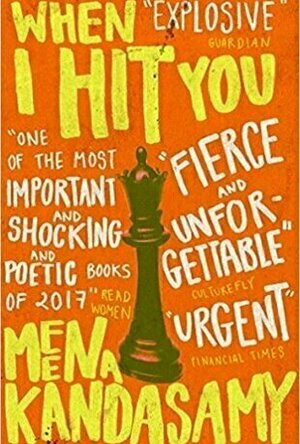
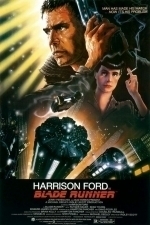


![The Fall [Audiobook]](/uploads/profile_image/9c3/727e33aa-e44e-4df8-8acc-1a9bf4ad09c3.jpg?m=1682868403)
